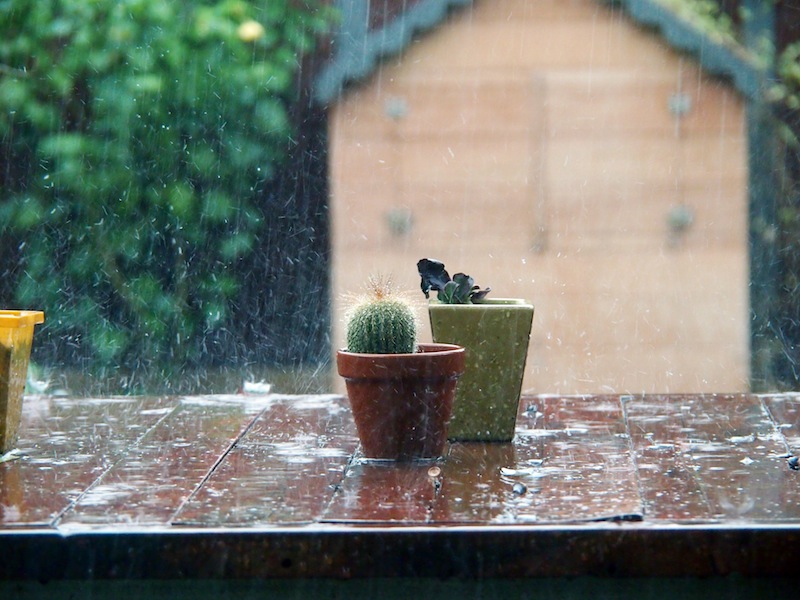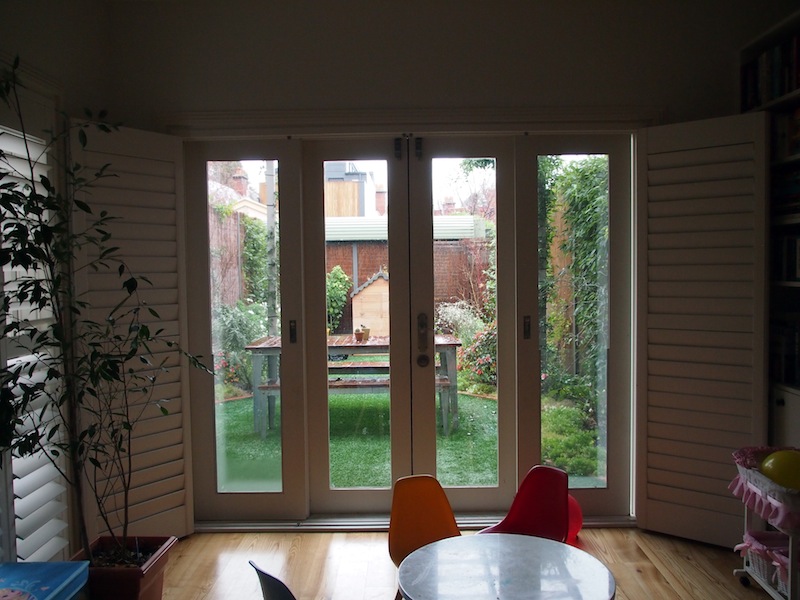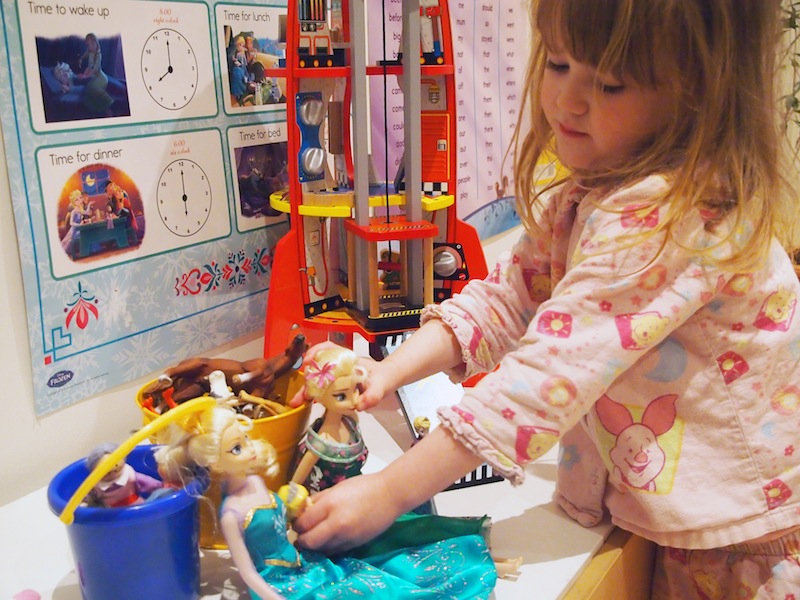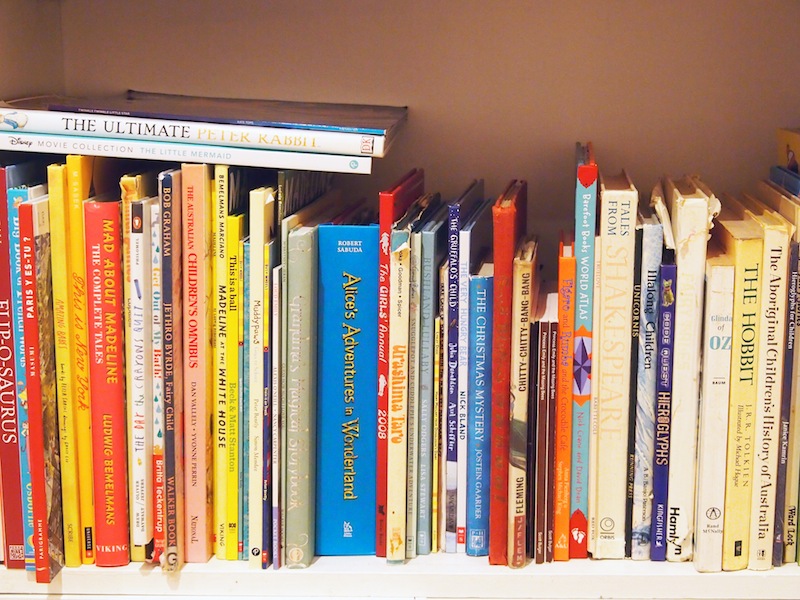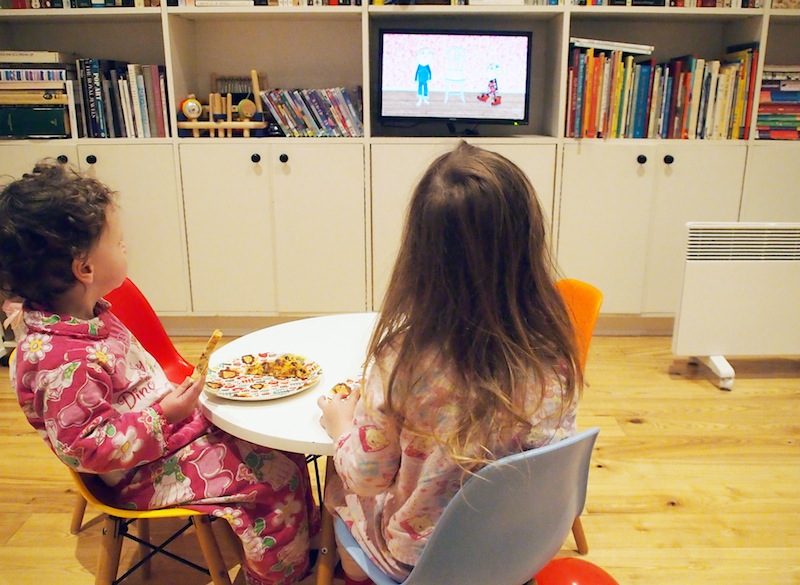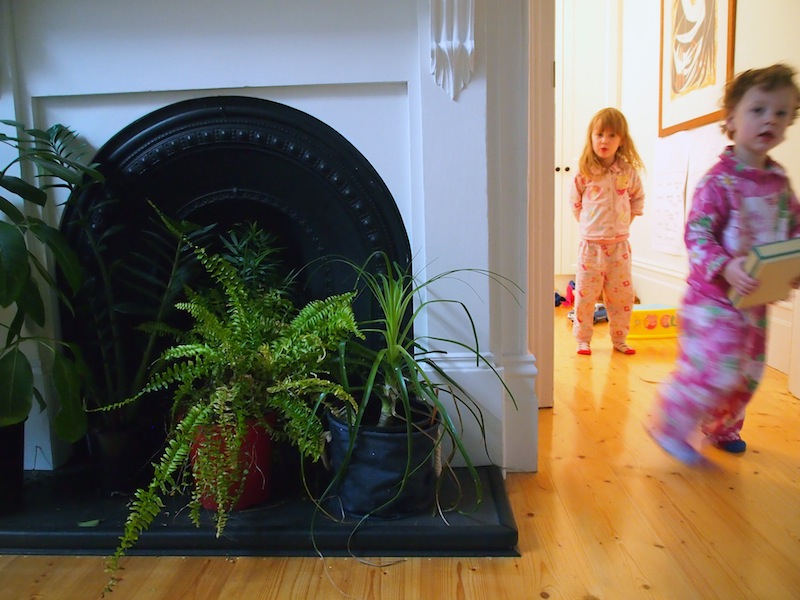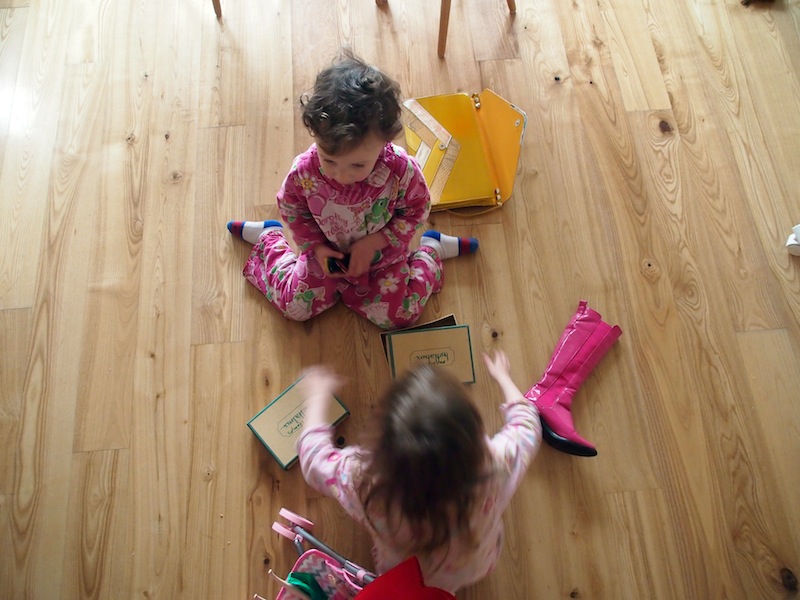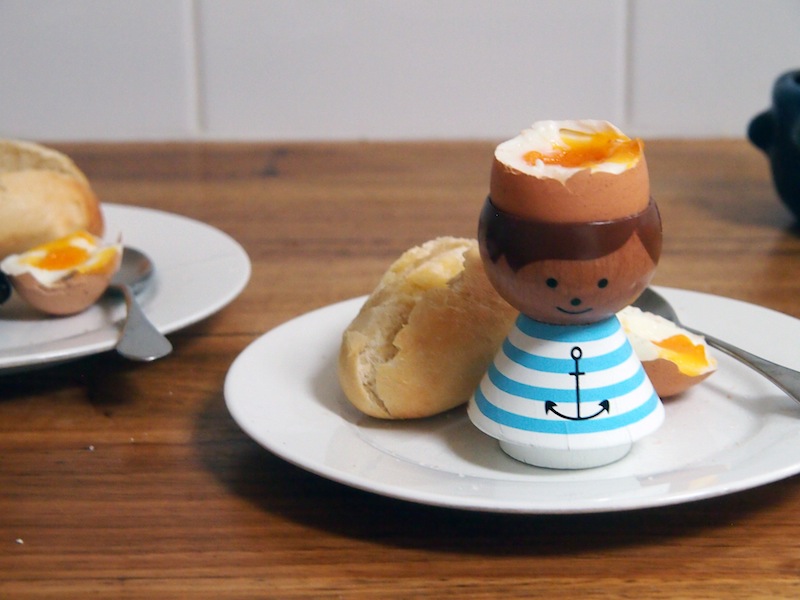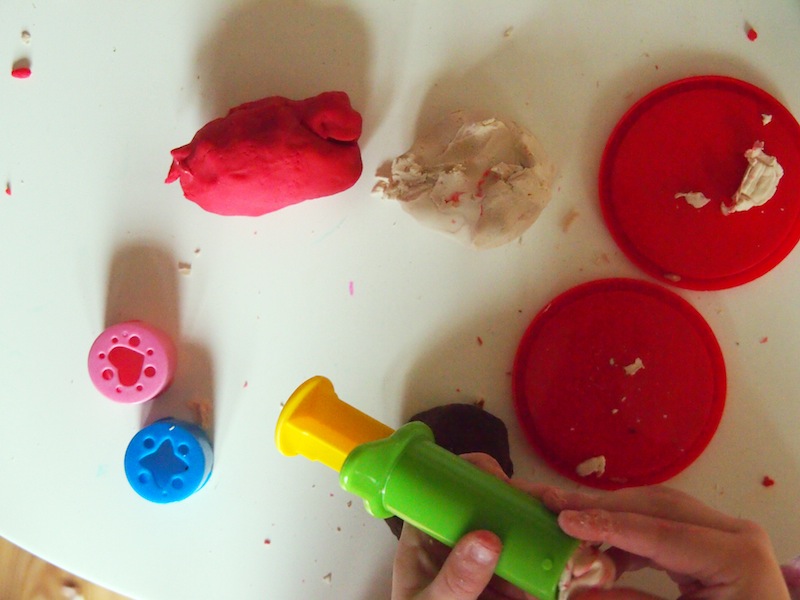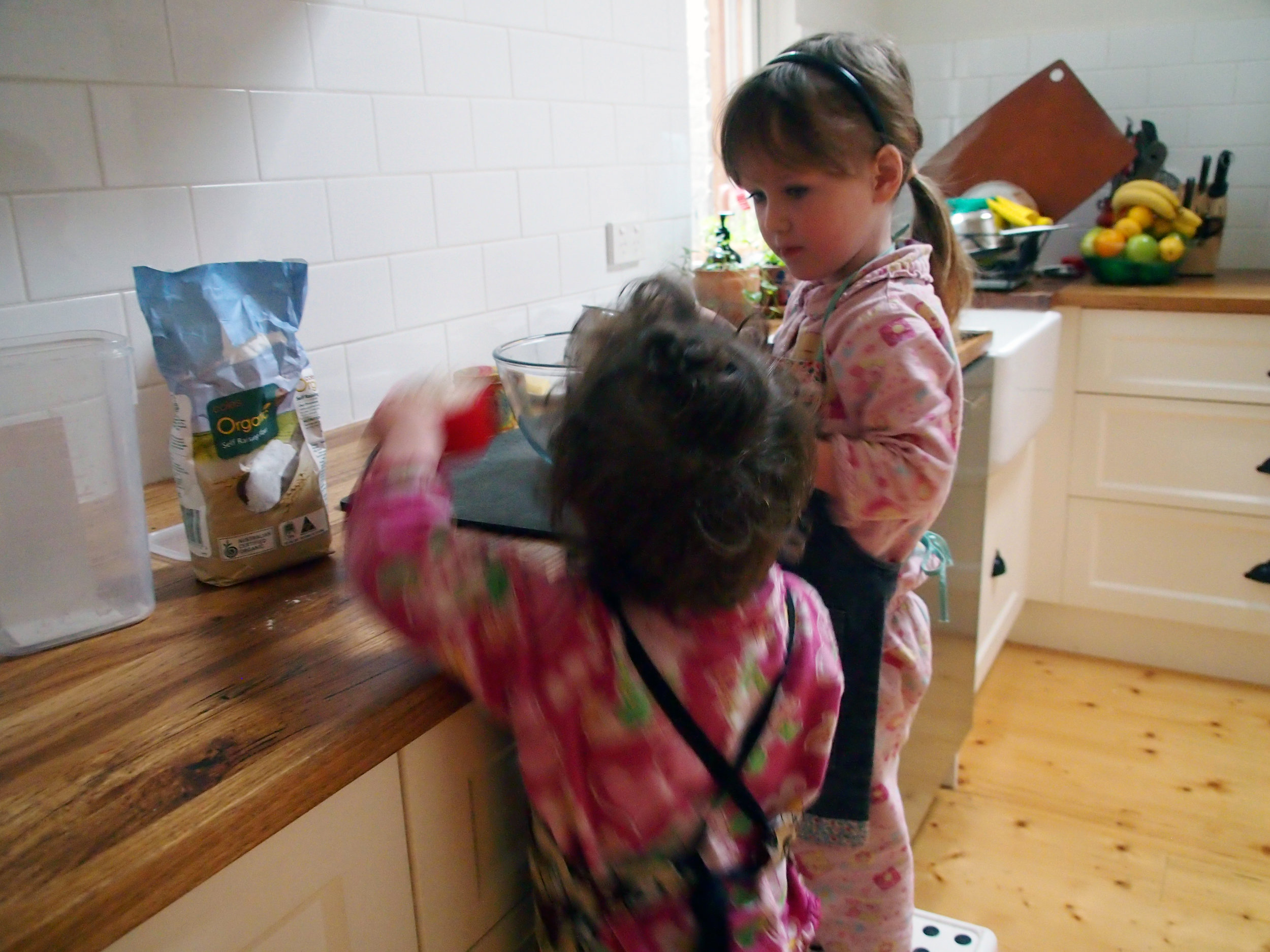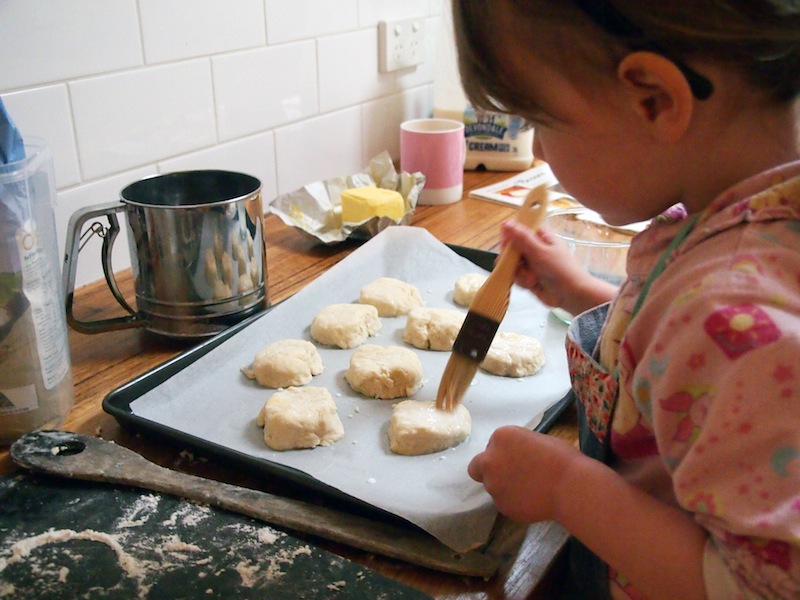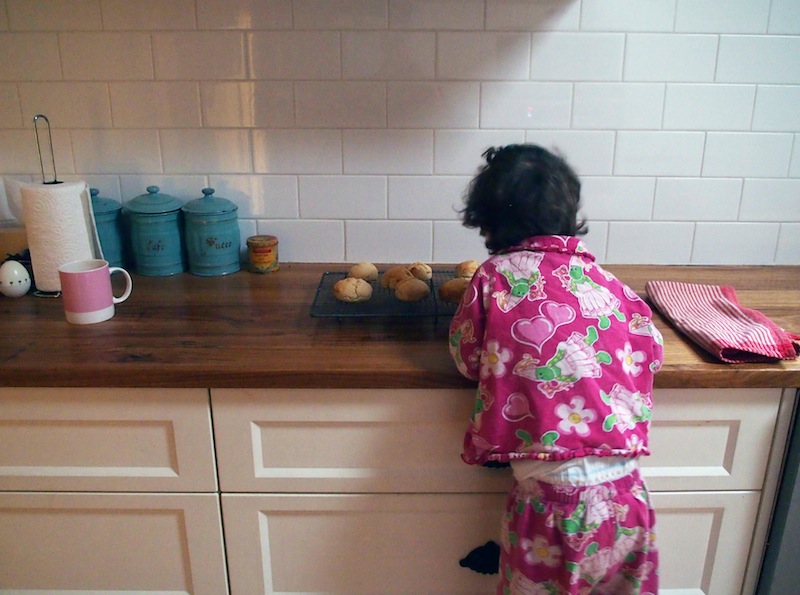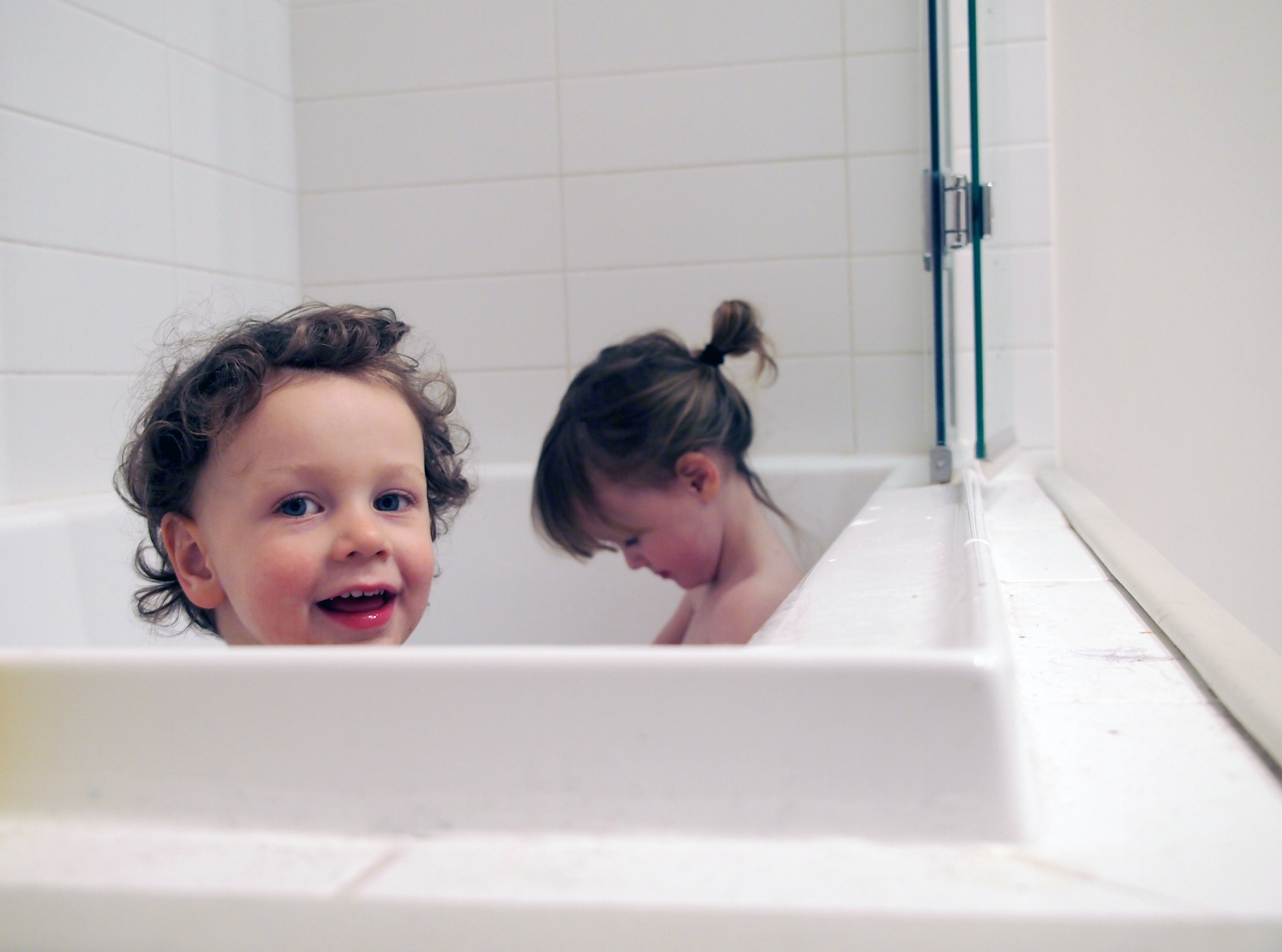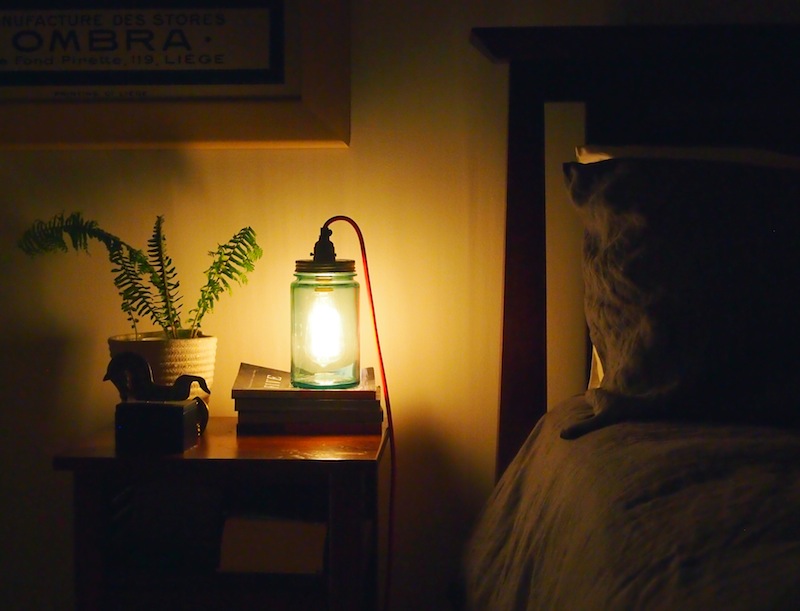
JOURNAL
documenting
&
discovering joyful things
Eccentric escape
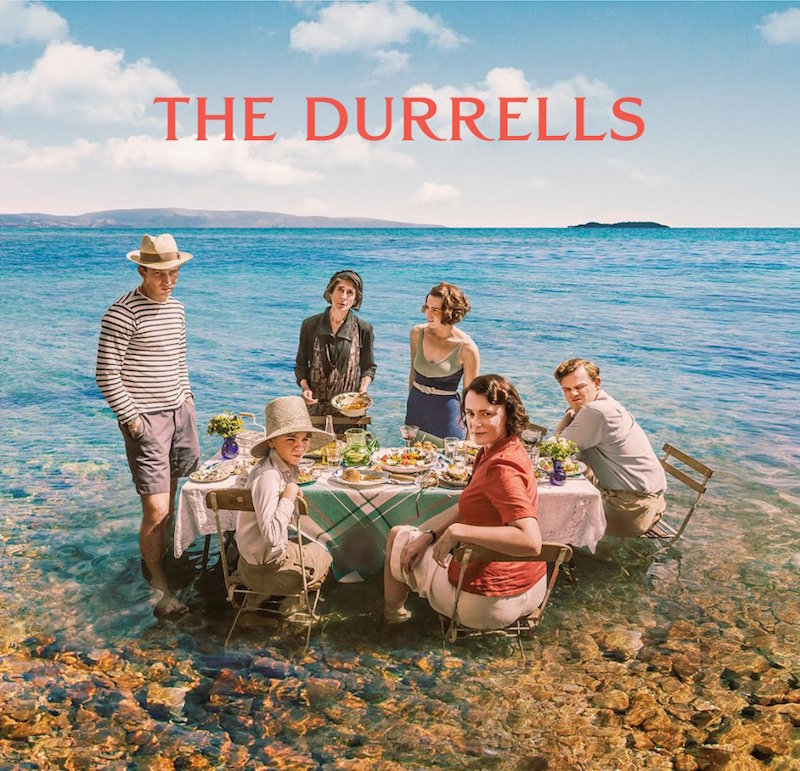
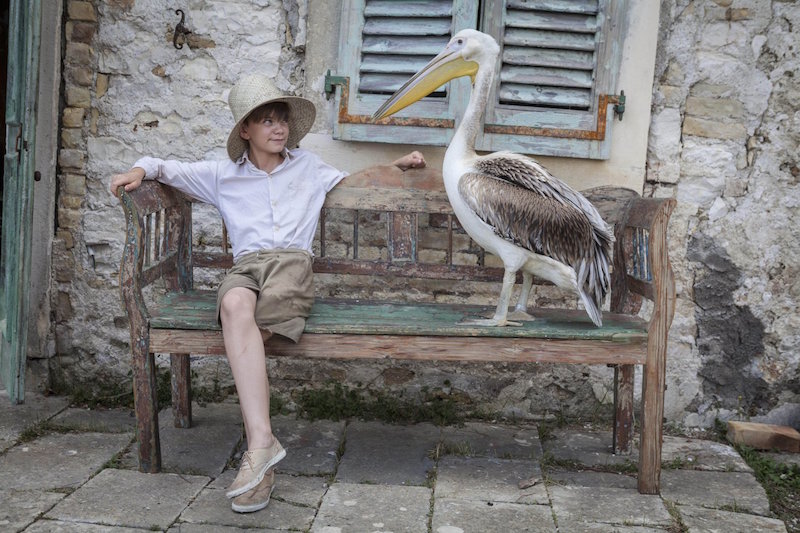
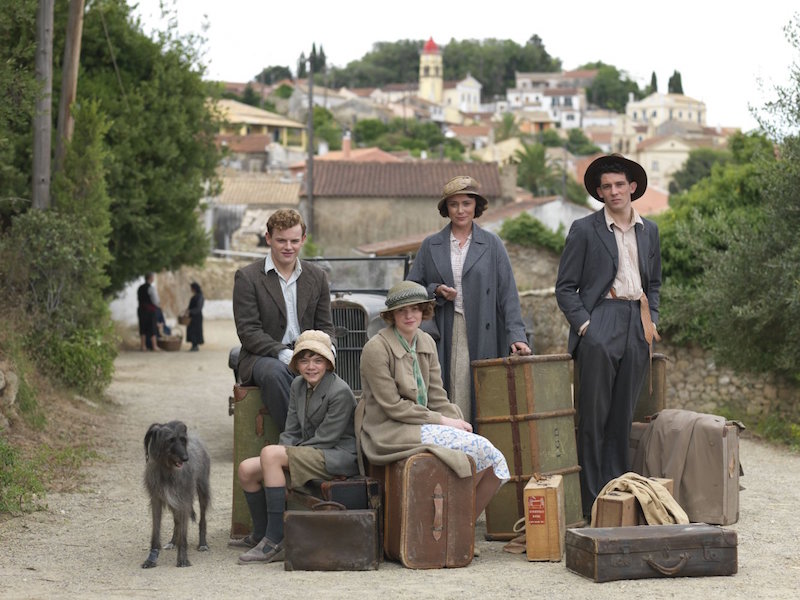
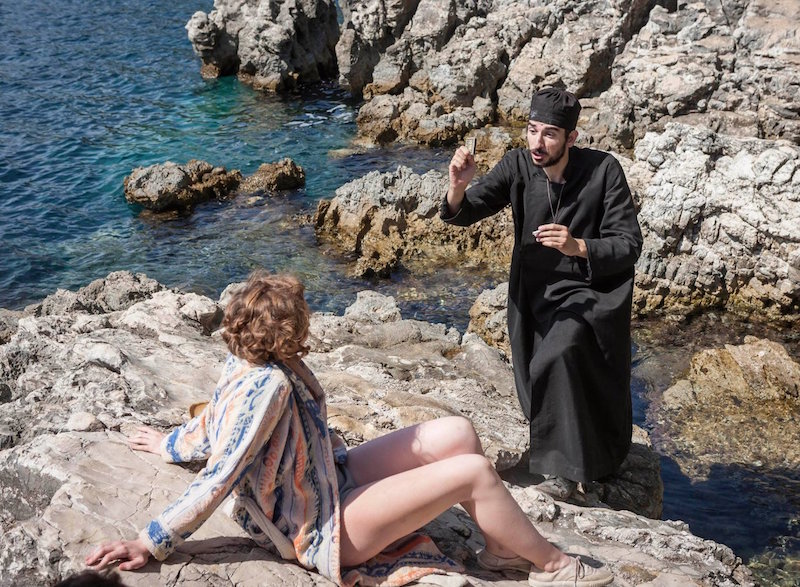
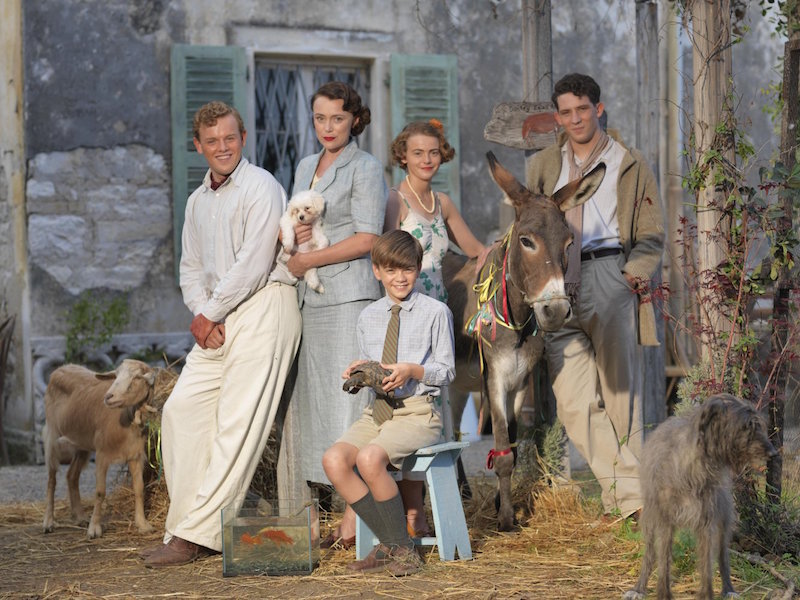
You can move away, you can run away even, but, 90 percent of the time, your quirks and fears and troubles stow away with you. I know this because I have moved a lot, and sometimes a long way.
This is the underlying theme of a new TV show called The Durrells. Thankfully, the quirks, fears and troubles that follow the Durrell family from Bournemouth in the UK to the Greek island of Corfu are also frequently adorable, affectionate, and genuinely funny.
Oh my gosh, I am so in love with this eccentric family of misfits and, in particular, with their mother Louisa, who is most often at her wits' end but is also my hero.
The series is inspired by the trilogy of books by Gerald Durrell. Remember My Family and Other Animals? My father gave me this book when I was a child, telling me how much he had loved it when he was a child. So now I can't think about the book without thinking about my father, which makes it doubly joyful to revisit the hapless Durrells in their warm and sunlit world.
In fact I never want to leave that world. A fruitless wish, since there are only six episodes to a season, but thankfully I hear a second season is already in the making.
And in the meantime, since summer is only just around the corner here in Australia, I am going to take a leaf out of the Durrells' book and eat lunch in the ocean, to keep cool. Tablecloth included. It looks kind of perfect, don't you think?
My one weakness
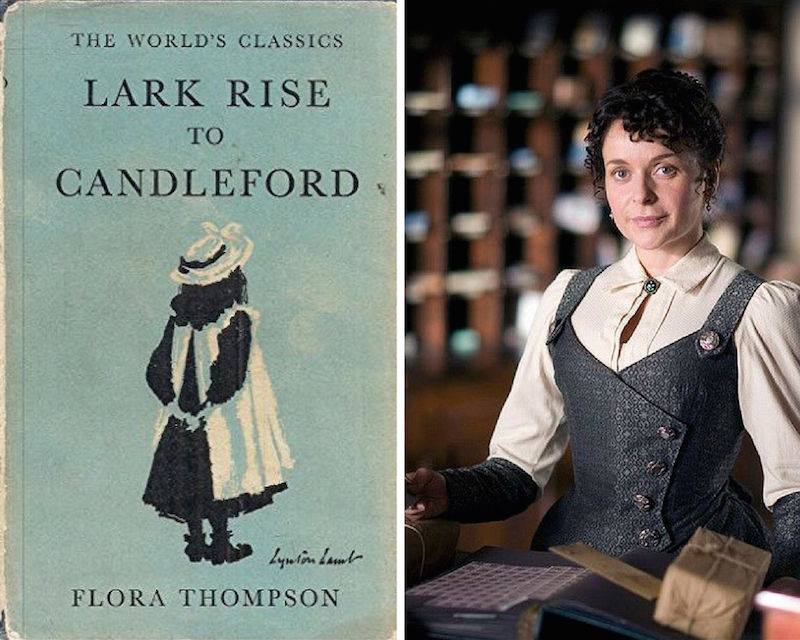
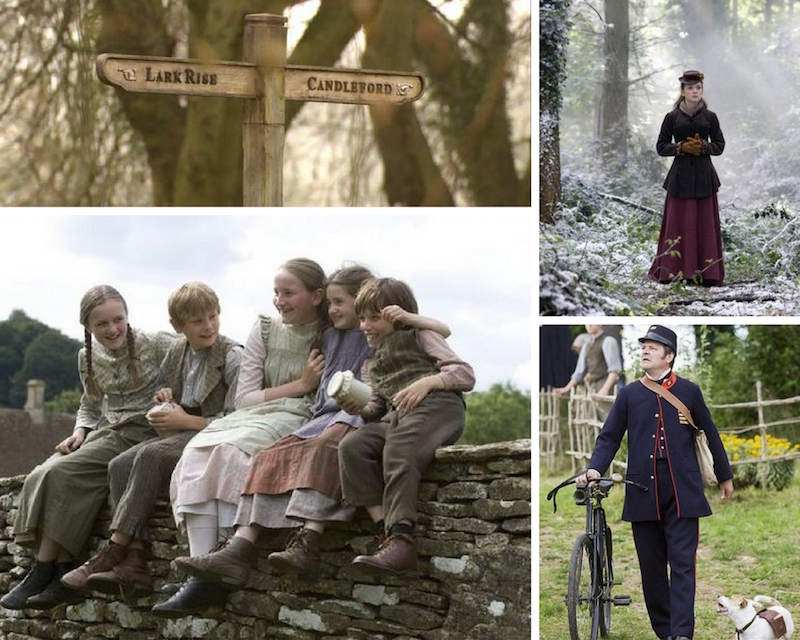
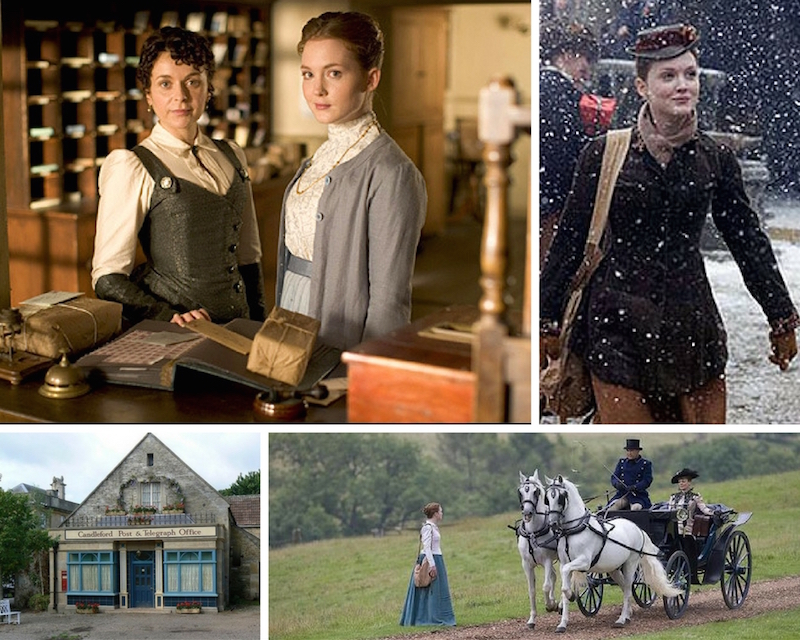
Recently, I had a conversation on this blog with a lovely reader called Jan. I'm paraphrasing, but the conversation went something like this:
Jan: Have you heard of the TV show "Lark Rise to Candleford?" It's a period drama set in a post office.
Me: *Instantly leaves office and runs to find it*
Now I'm up to Season 2, and utterly in love with this little show. It is gentle, thoughtful, innocent, warm-hearted, and makes me feel nostalgic for a kind of life I've never known.
In case you haven't heard of it, Lark Rise to Candleford (which is based on a semi-autobiographical trilogy of books of the same name by Flora Thompson) centres around two small rural communities at the turn of the 19th century: the tiny hamlet of Lark Rise, and the wealthier and bigger (but still tiny by our standards) town of Candleford, both in Oxfordshire in the UK.
When in Candleford, most of the action centres around the comings and goings of the Candleford Post Office, which is run, rather controversially, by a woman. The Post Mistress, Dorcas Lane, is truly delightful: wise, loving, independent, glamorous, and ahead of her era in so many ways. She claims to have "one weakness," although depending on the circumstance, that one weakness could be anything from cake to feather pillows to buttermilk baths.
When Laura, Dorcas' young niece from Lark Rise, comes to work at the Candleford Post Office, Dorcas takes her under her lovely, protective wing and teaches her the way of the world... and of the post. I have been learning right along with Laura as I watch, and here is what I've gleaned so far:
* A century ago, the post was the only real way that people could communicate with others at a distance. It was possibly the most essential community-service of the time
* The post office itself was a community hub. All but the most hardened recluse had need of the postal services at some time or another so, in small communities, it became a natural meeting place for neighbours to gather and chat and swap stories and gossip. To "pass the time of day," as Candleford or Lark Rise folks would call it
* Postal workers were the keepers of secrets. They knew who wrote to whom, and how often. They could see the looks on faces - the shakes of hands - when letters of import were posted or received. They knew the contents of every telegram even before the recipients did
* The postie knew everyone in the community. Letters were delivered not into boxes but into hands, and the route to every home was an opportunity to observe and greet and forge connections
* And this, a quote from Season 4 (which I haven't actually seen so no spoilers please!), which sums up rather beautifully the power of a pen-and-ink letter:
"When words are written down, they can be the finest expression of the human soul... Once words are marked down on paper, they can not be taken back. They are in the world for good or for ill. They wither or they endure. Words can be dangerous things."
The climb
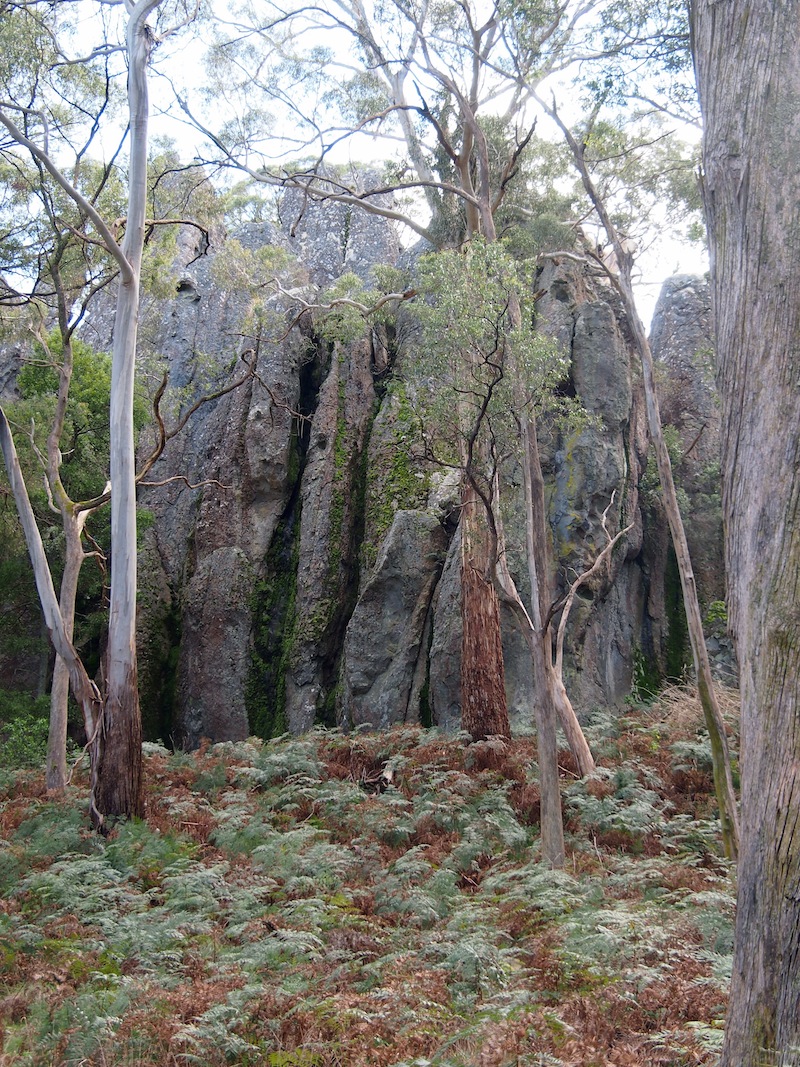
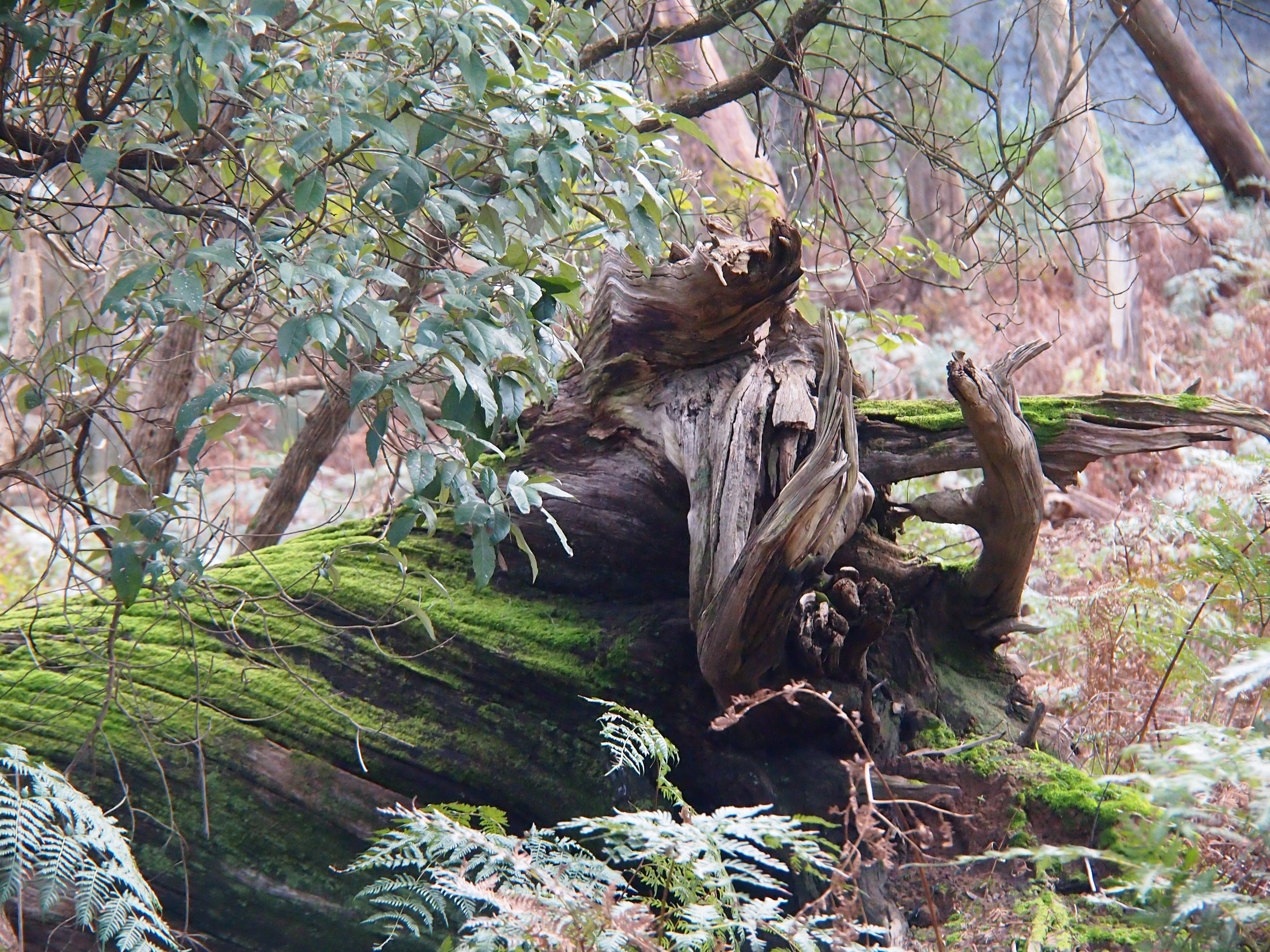
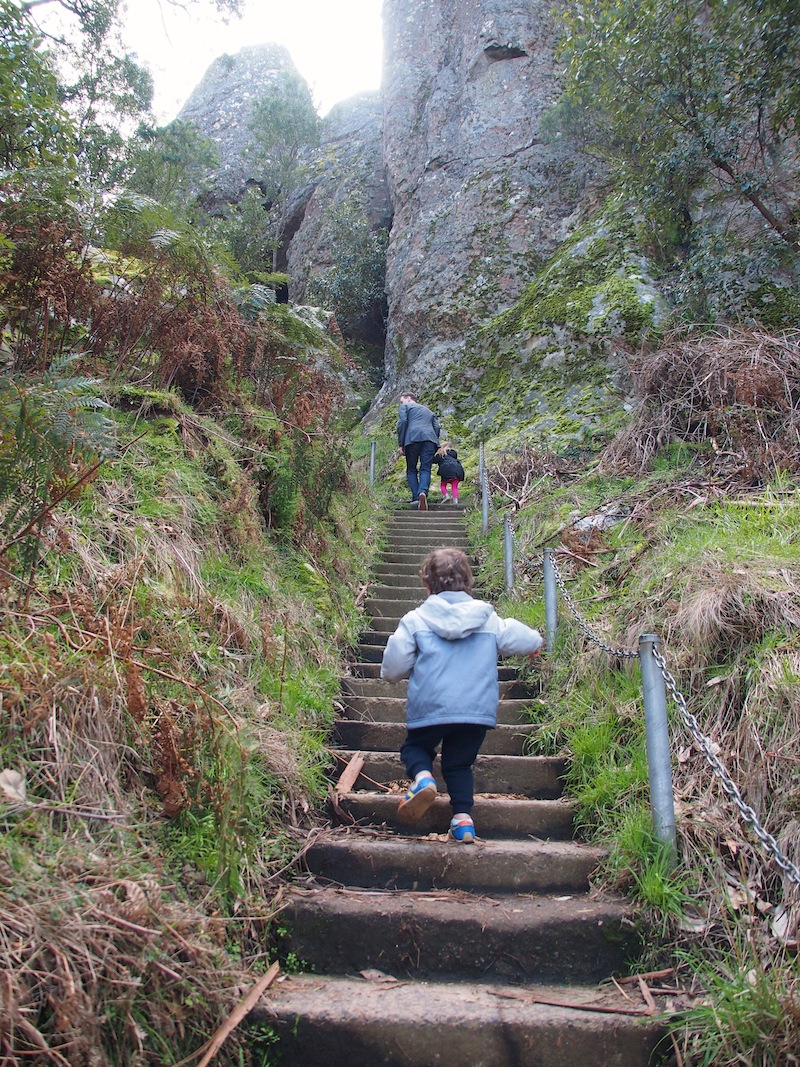

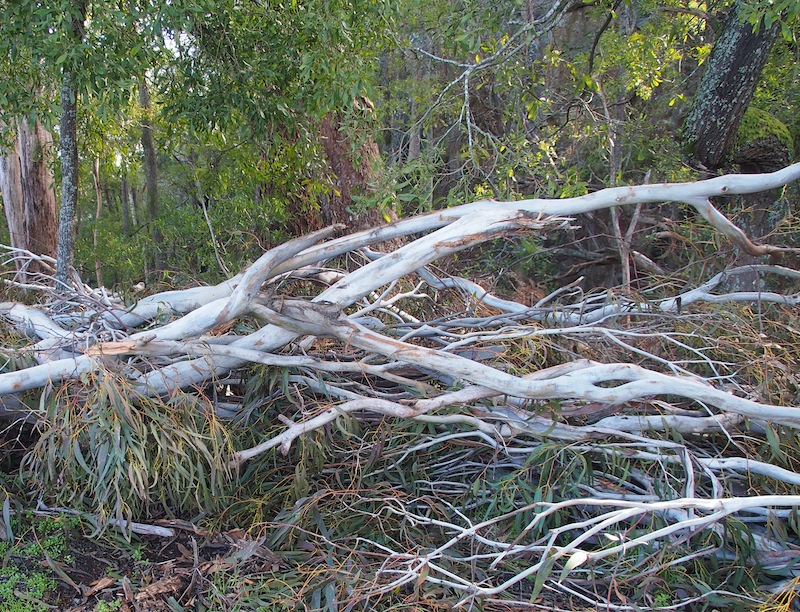
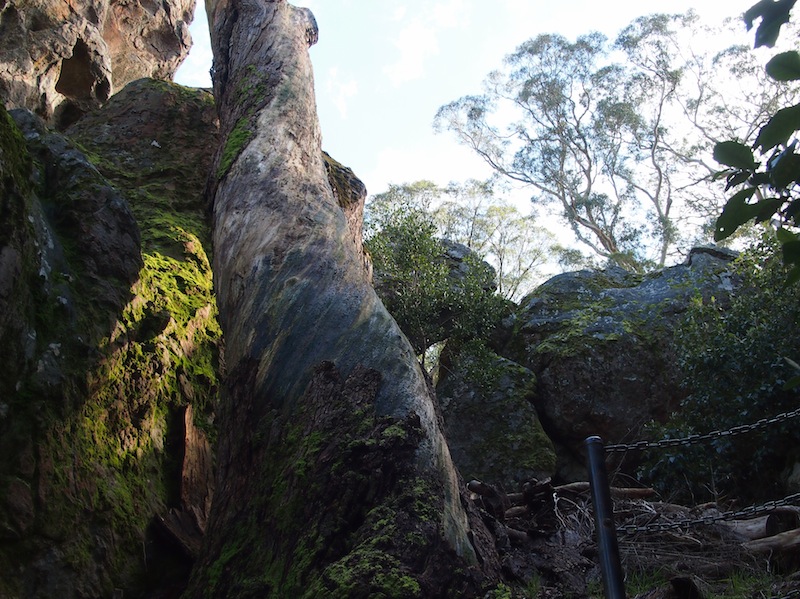
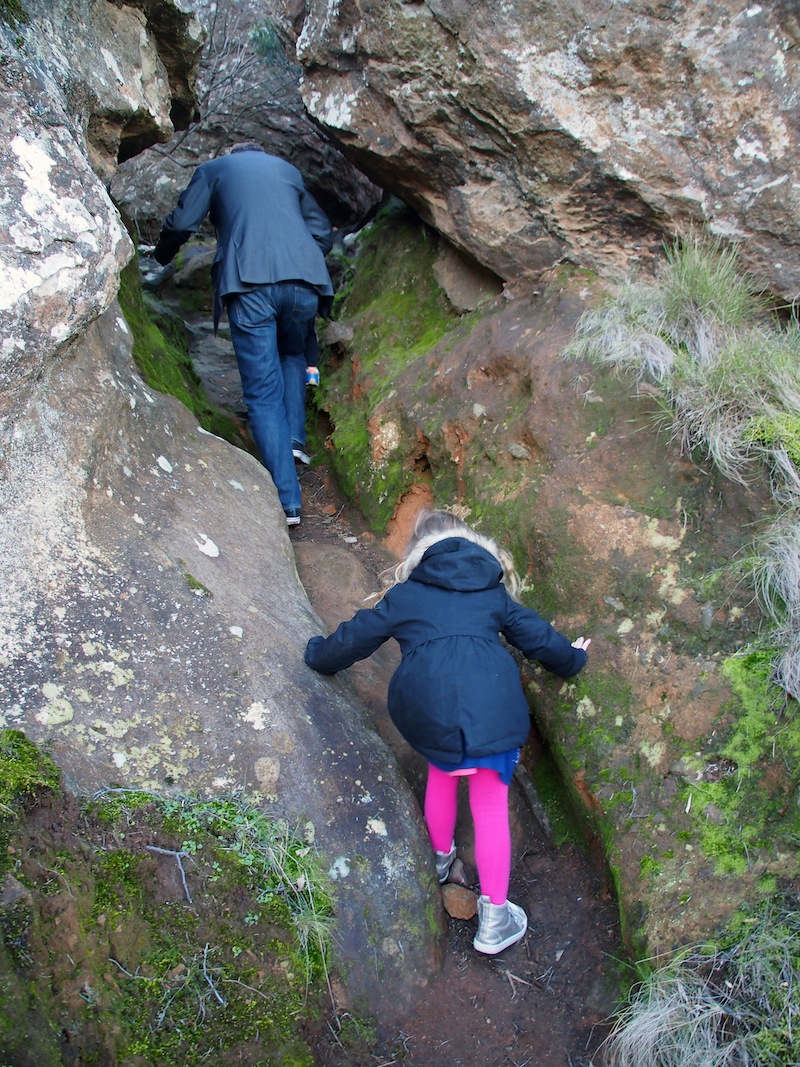
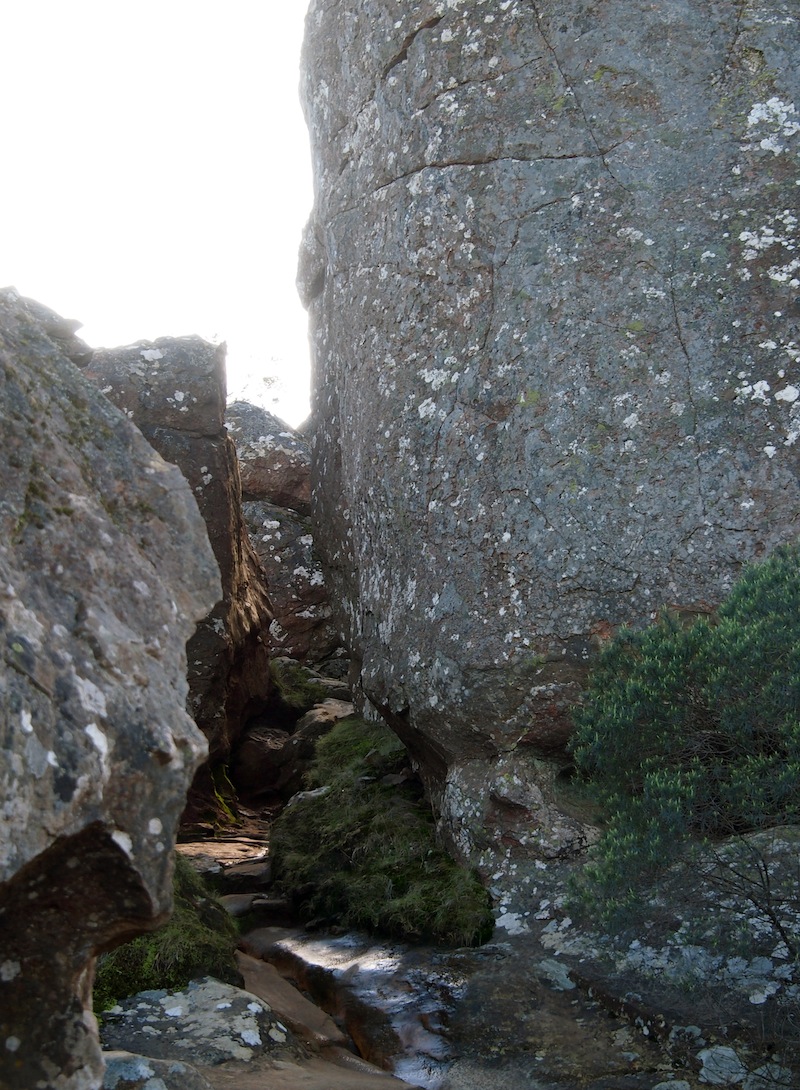
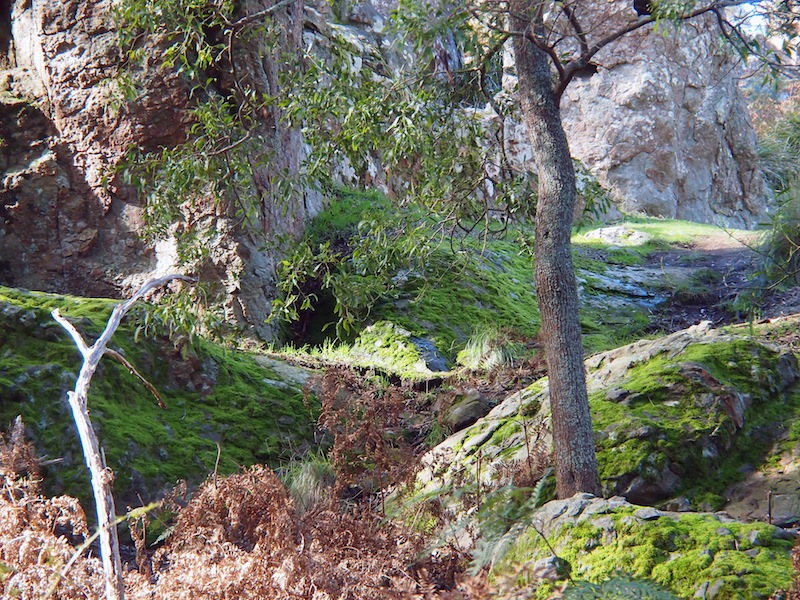
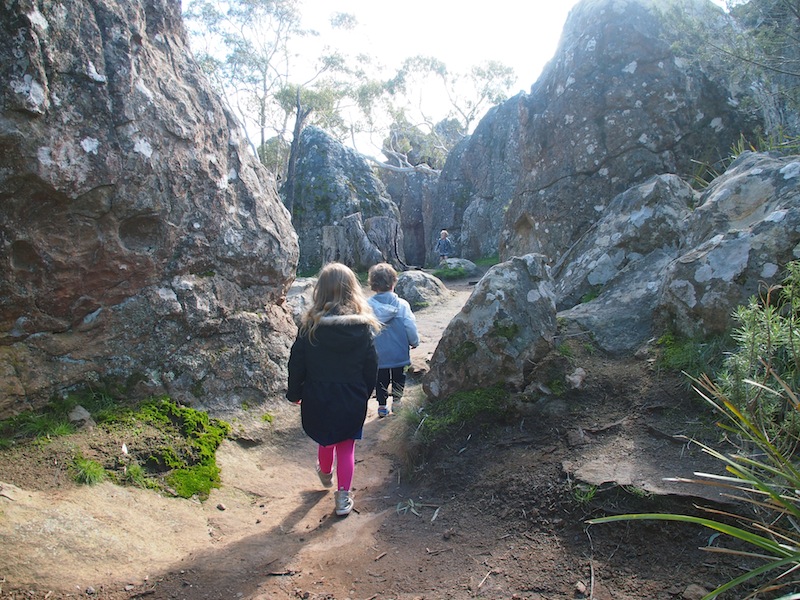
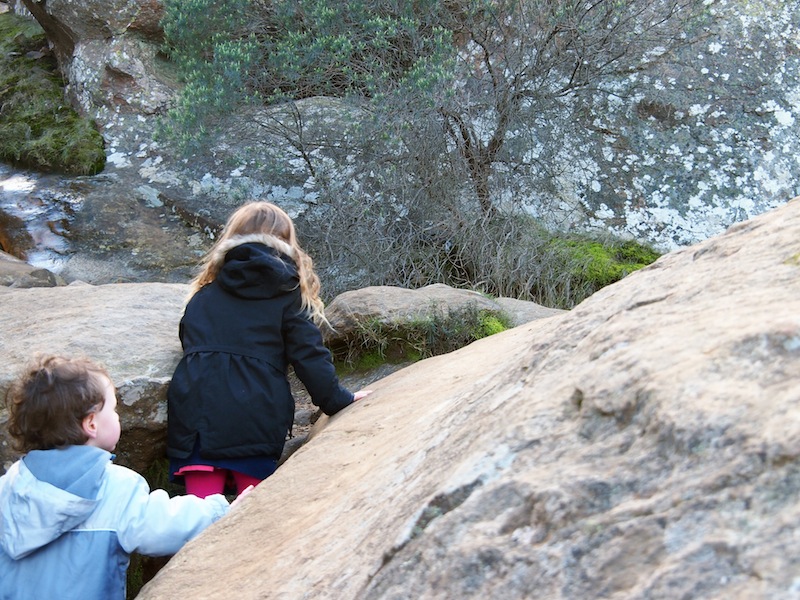
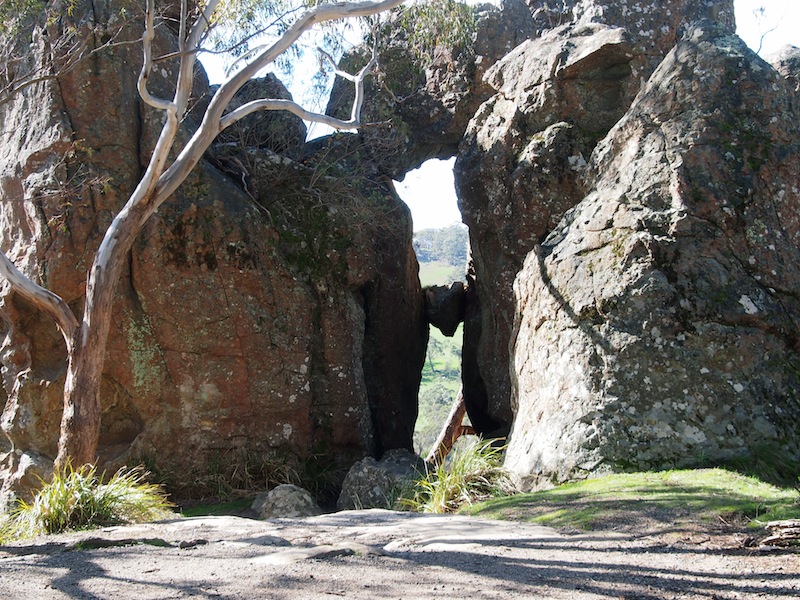
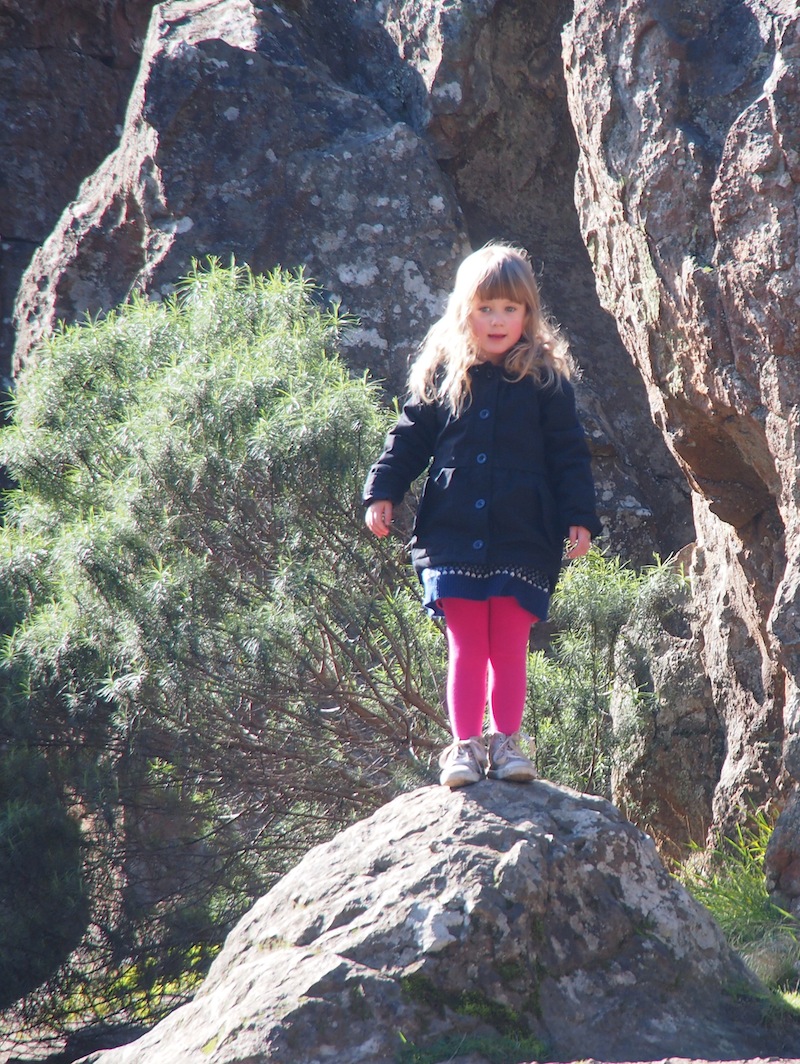
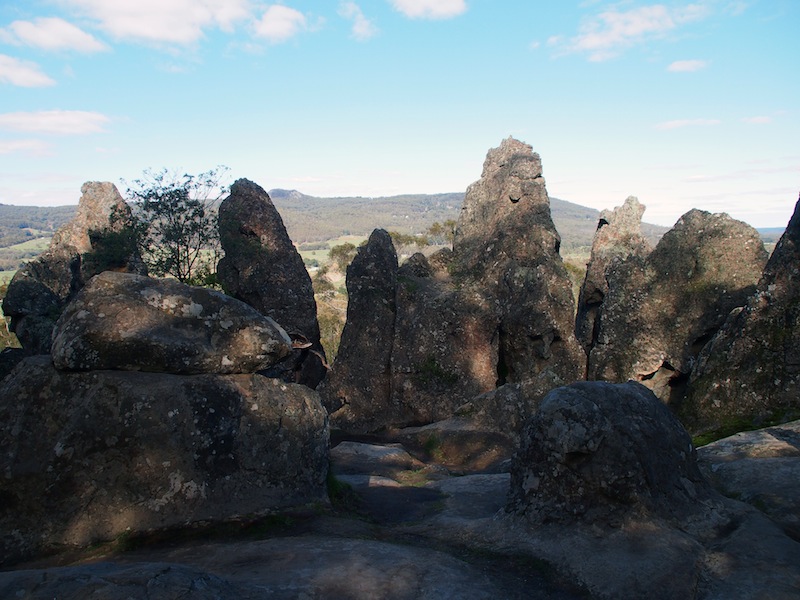
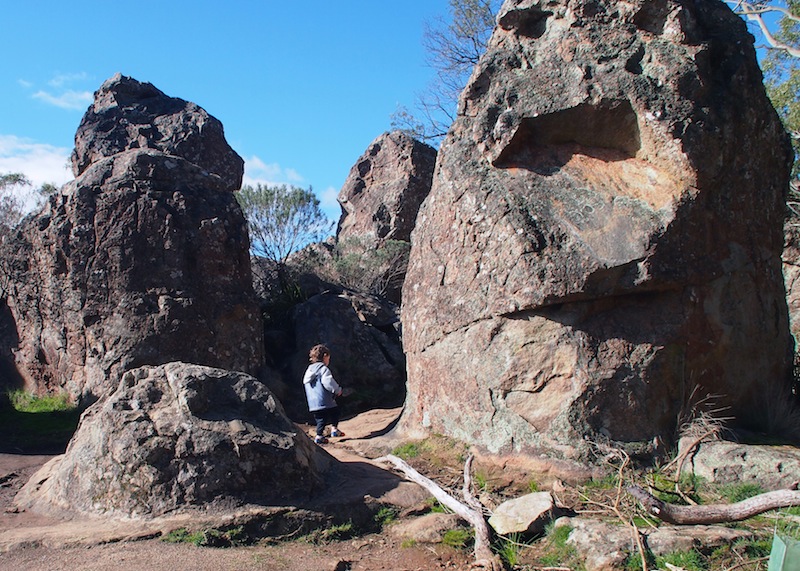
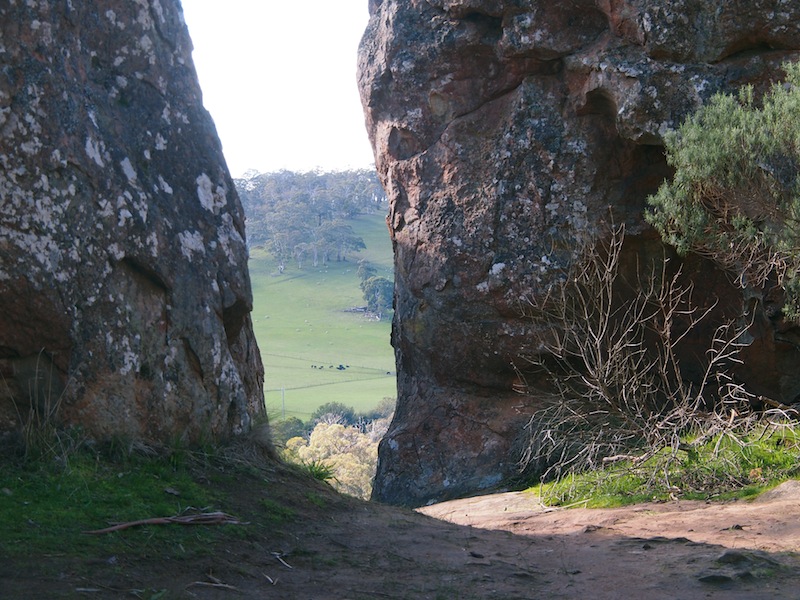
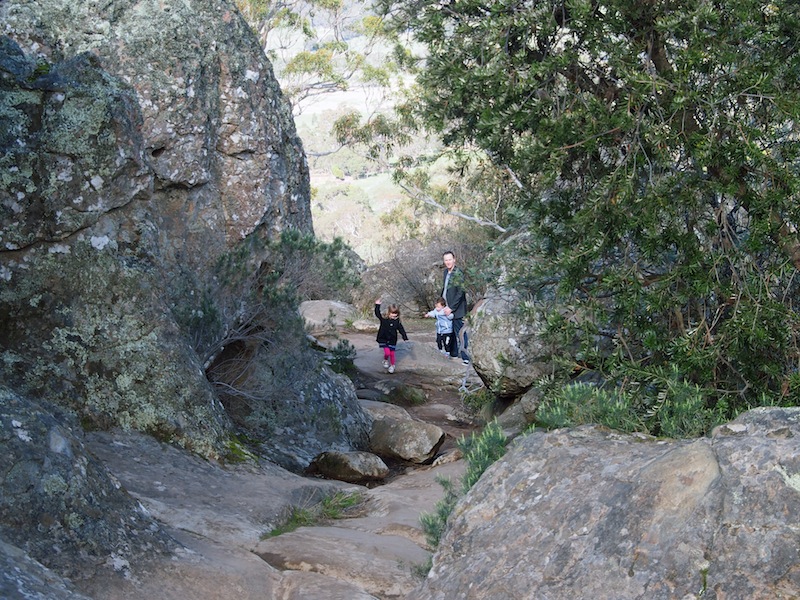
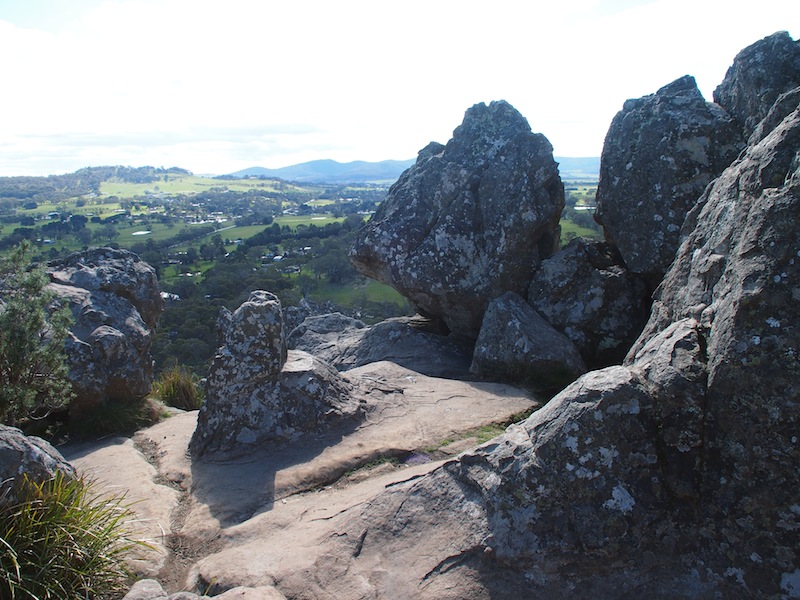
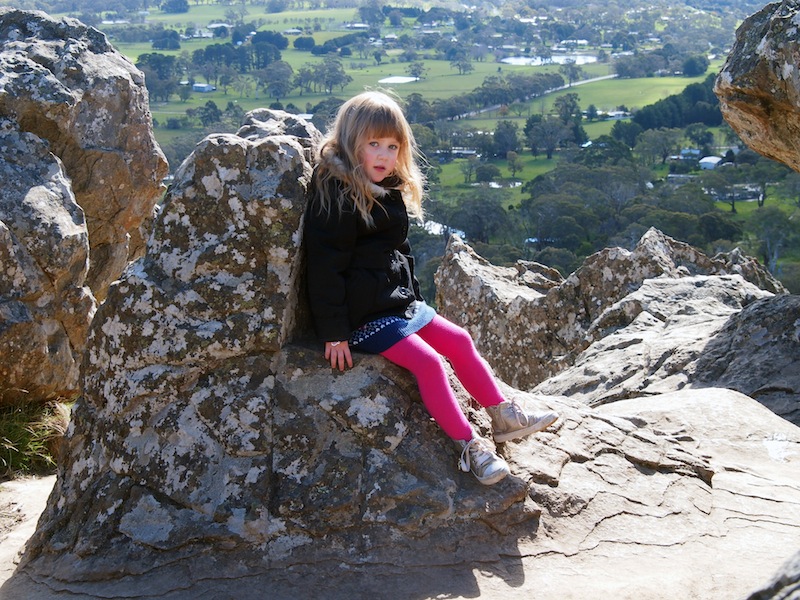
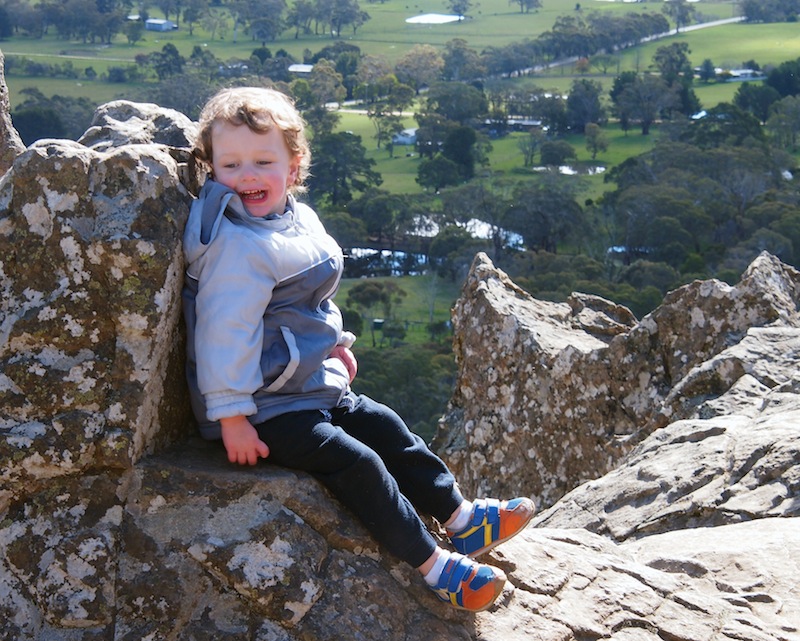
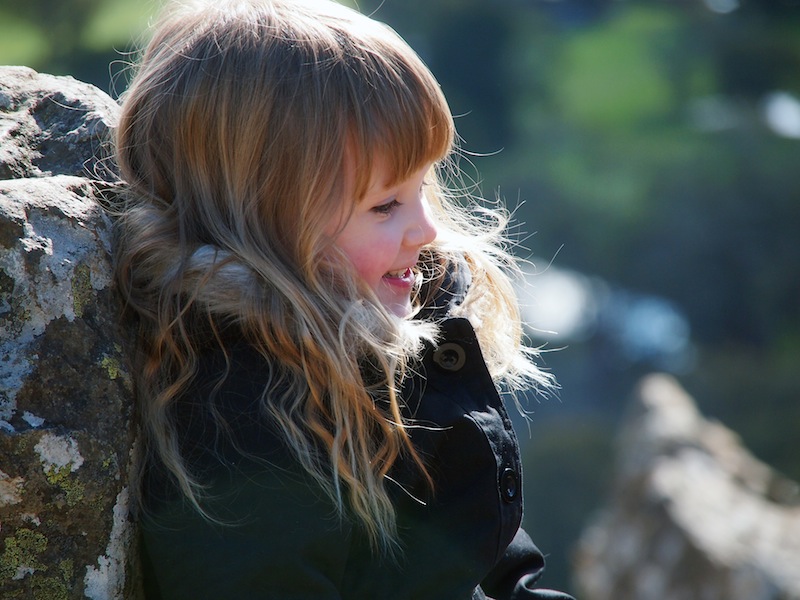
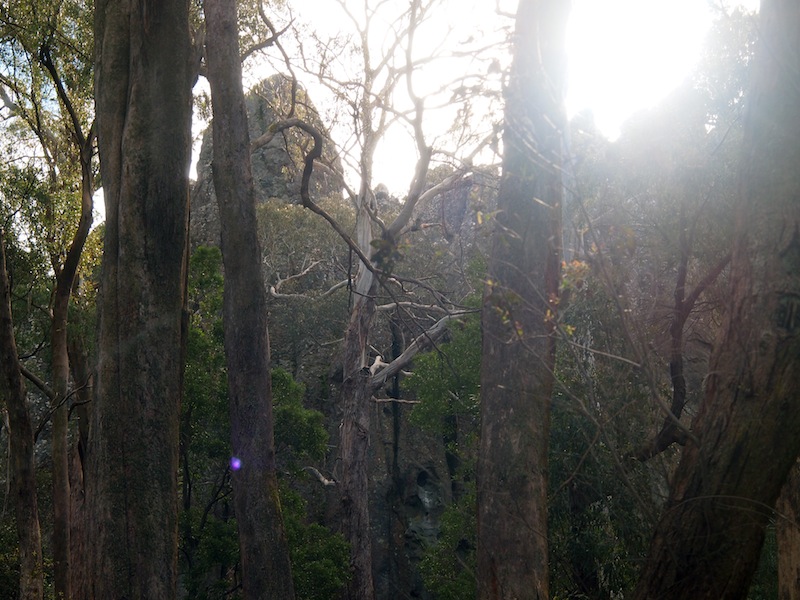
"Let's climb!" shouted Ralph. And so we climbed, free of foreboding.
In the shadow of those great rocks was no ominous hum, no sudden chill, no tingling premonition of hidden watchers' eyes. Instead, there was sunlight trickling through old bracken and ferns. Filtered water splashing out of rocks. A tiny boulder in the shape of a love-heart, wedged between two giants and framing a window to the bottom of the world.
"Let's climb!" said Ralph again. So we ventured off the pathway and scrambled over rocks and in between narrow passes and under natural bridges and, all the while, we found sunlight and clean air and great beauty... and no ghosts.
When you come alone to a place as ancient and spirit-filled as Hanging Rock, secrets whisper at you and watch you from just inside the other plane, and goosebumps come as naturally as breathing. The boundary between imagination and experience is blurred, and you are at the mercy of Place.
When you come in the company of two small children, however, it is hard to hear the spirits over the coughs and sneezes and "My legs are tired!" and "Let's have a race!" and giggles and kisses and "Can I have a banana?" and "Can you carry me?"
I thought the spirits had left Hanging Rock, at least while we were there, retreating into caves to find silence away from our relentless noise. But as I prepared these photographs last night to share with you, and I realised the ghosts had been there all along, watching, as we climbed.
Can you see them? In the strange shadows and sometimes-odd light, and in the many, many faces in the boulders?
Ahhhhh, tread lightly!
Come into the woods
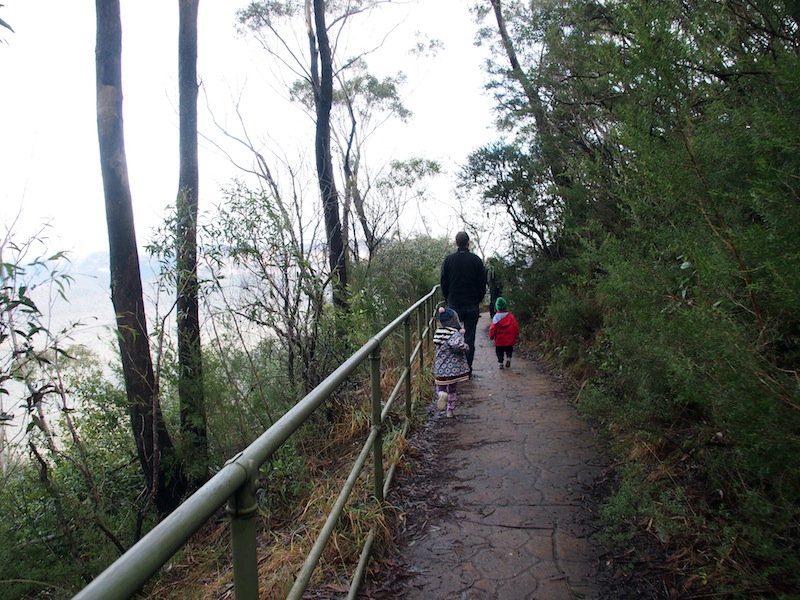
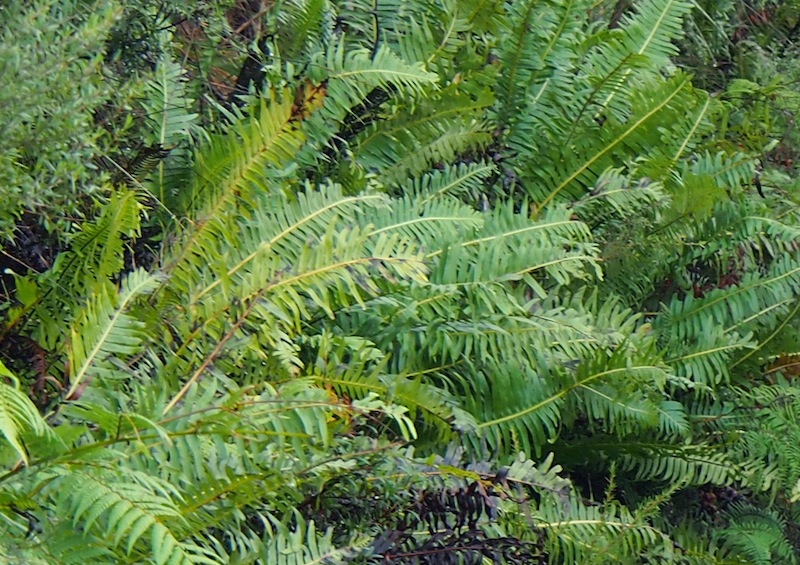

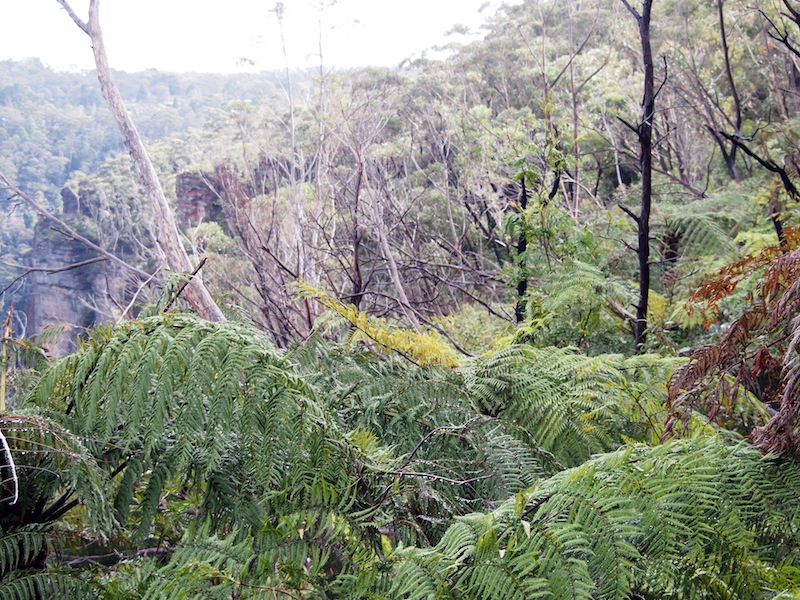
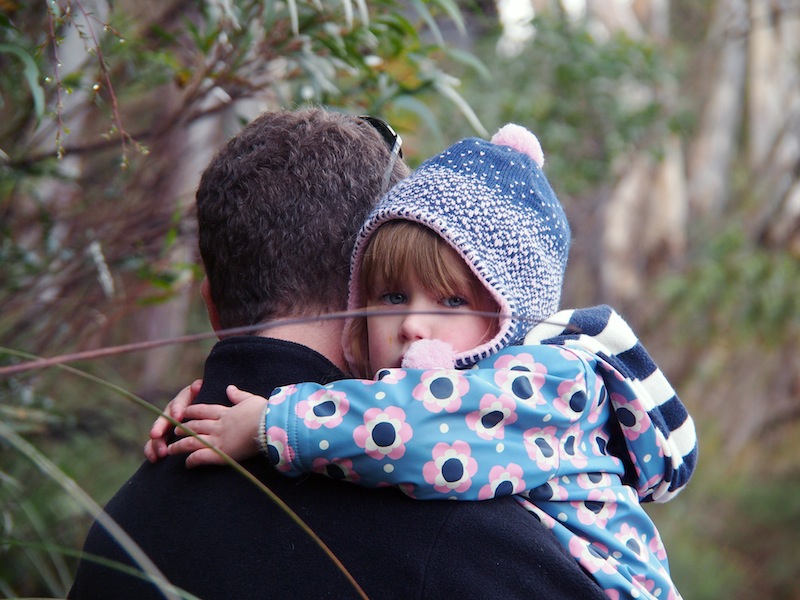
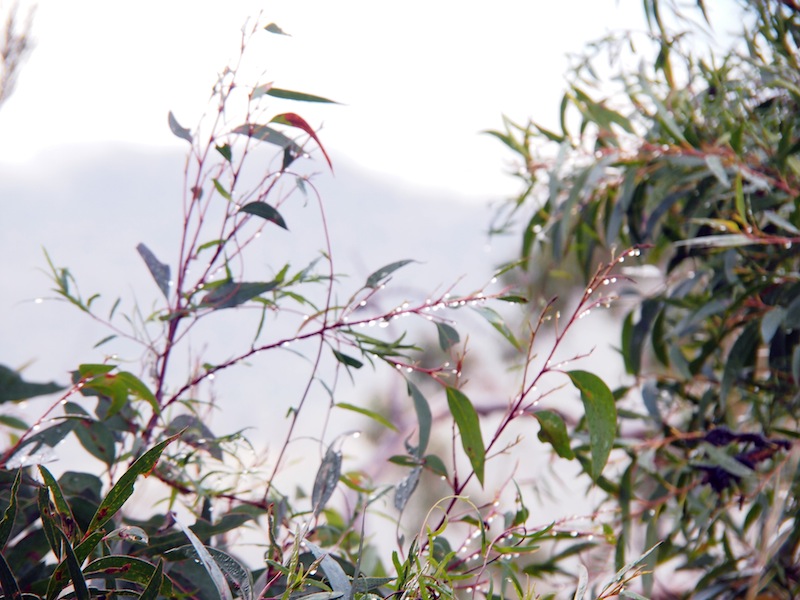
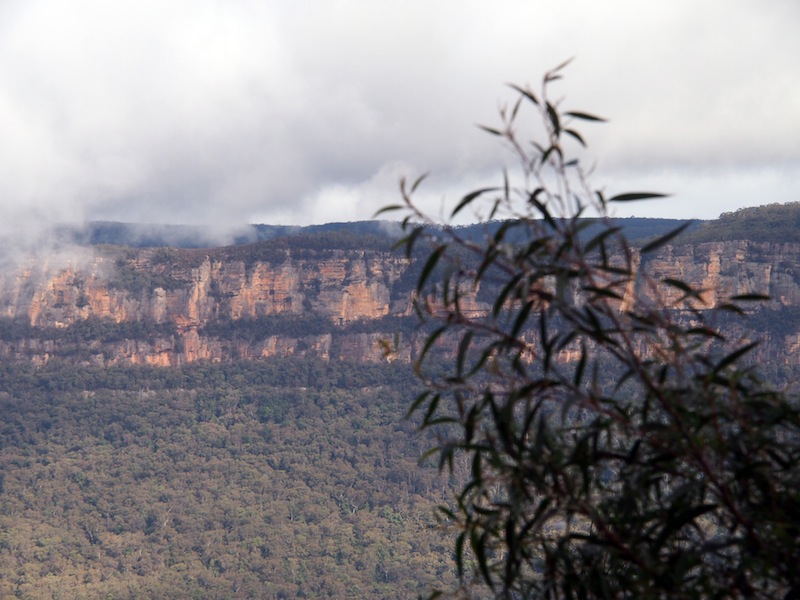
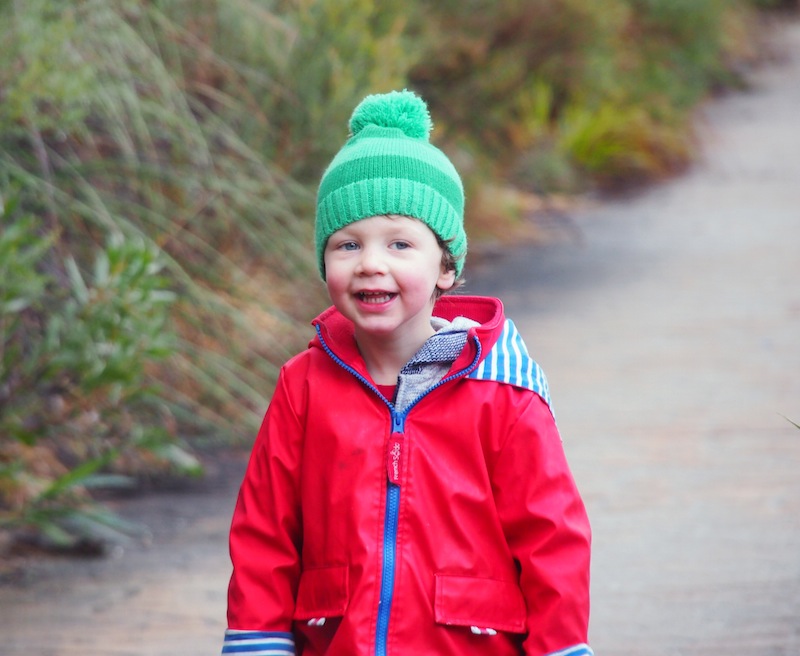
Come to the woods, for here is rest. There is no repose like that of the green deep woods. Sleep in forgetfulness of all ill. ― John Muir
You ask me why I dwell in the green mountain; I smile and make no reply for my heart is free of care. ― Li Bai
Lately
 We have been on a little road trip, through icy mountain roads and windy city streets and sparkling harbour shores.
We have been on a little road trip, through icy mountain roads and windy city streets and sparkling harbour shores.
Hugs, the kind you share with dearly loved friends and family who you haven't seen in a long, long time.
Making crumpets with vegemite and setting off the fire alarm. Every morning.
Long walks to nowhere and anywhere.
Reading the latest issue of Lunch Lady during the children's nap times (taking note of the homemade butter recipe, now that I've discovered a homemade bread recipe that works).
By night, writing letters and drawing mail-art.
Why wait?
 First, this memory.
First, this memory.
I am seven or eight years old, and my parents' friends Sue and Ian have come to stay. After dinner, we all sit cross-legged on the carpet in the lounge room and sing. Folk music, mostly, from the 60s and 70s, as well as some of their originals. Ian pulls out his guitar, Mum pulls out her flute, everyone sings. Ian is super-cool to me, a bit like Bob Dylan, but Sue’s voice is more like a soprano version of Karen Carpenter: all strong and smooth, with a gently undulating vibrato. As she sings, she bends her head forward and her long blonde hair falls over her shoulder like a single sheet of water. Like an angel.
This is what I think about as I sit on the carpet with them all, listening and admiring and sometimes joining in, and I feel like I have been allowed into something special and mysterious and grown-up. I also think, "I want to be Sue when I grow up.”
They were playing Cat Stevens in my local cafe yesterday morning while I waited for my bagel and coffee. “Too emo” muttered the barista, and switched to something else, but the damage was done. Like osmosis, I had already absorbed the song under my skin and, once there, it made its way into my blood-stream and within a nanosecond had tickled a long-neglected corner of my prefrontal cortex, awakening the memory of this late-night singalong from its decades-long hibernation.
Holding my coffee, I walked back along the footpath in the bitter cold and spitting rain, thinking about friends and music and, because Cat Stevens was still on my mind, I also thought about the Harold & Maude soundtrack. Especially the two songs that Cat Stevens had written just for that movie (this one and this one), which are both about stepping up and being proud of who you are, and embracing your life. Scout loves these songs, and asks to hear them often.
I thought about that scene in which Maude sang “If you want to sing out, sing out” and it made me smile. I started humming to myself as I walked through the rain, which was sweeping sideways by now. My hands were so cold I couldn't feel my fingers around the coffee cup.
I thought, “I want to be Maude when I grow up.”
And just at that moment, in the wind and rain, a woman drove past me on a beat-up old Vespa motor scooter. The woman would have been at least 80 years old, maybe more. She was wearing an ancient helmet that looked like one of those WWII aviator helmets, and was squinting against the icy rain that must surely have been piercing her cheeks like needles. Across her face was spread an enormous smile of pure joy.
And I thought, "Why wait?"
Image credit: Ismael Nieto, licensed for unlimited use under Creative Commons
Winter solstice
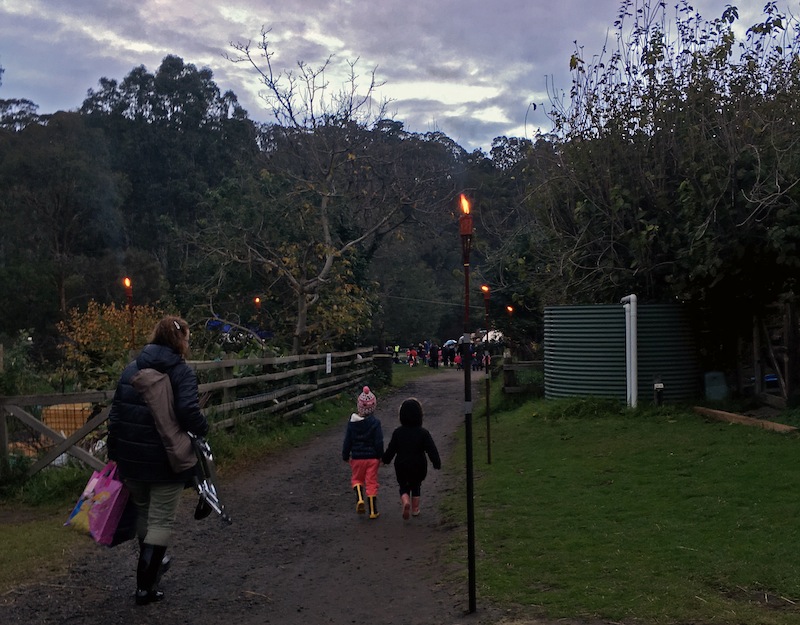 I welcomed the sunrise on the morning after the winter solstice in the solitude of my still-sleeping house. The first cup of tea of the day was beside me on the window-sill, making miniature mist on the cold glass.
I welcomed the sunrise on the morning after the winter solstice in the solitude of my still-sleeping house. The first cup of tea of the day was beside me on the window-sill, making miniature mist on the cold glass.
Slowly the long, long night - the longest night of the year - burned away into grey dawn. The first light pierced the antique glass above our front door, now pink, now gold, and soon the whole room swam with morning. Upstairs, my family began to stir, and the day began.
My winter coat, draped over a chair to dry, still smelled of damp earth and woodsmoke from the previous night's solstice bonfire (a bonfire which, thanks to a week of rain, had taken a lot more coaxing to ignite and somewhat lacked the primal oomph of last year's fire, but was nevertheless beautiful and brilliant in the end).
On the solstice night there had been a tiny break in the clouds as we waited for the bonfire to catch alight and, seeing it, Ralph had yelled "The moon! I want to touch the moon!" We showed the children the Southern Cross, and the two Pointers that show the way, and, glowing steadily directly above the moon, we found Venus. Ancient fires and rocks, all of us, spinning and hurtling through millennia, marking the dark days. And the light ones too.
As the morning's temperature crept into double digits, I ventured into my frost-melty garden to dig and plant and prune, and to think some alone thoughts about winter and hibernation and stillness, and about all the quiet rest and rejuvenation that happens underground, for life to burst forth life in spring.
Anticipation


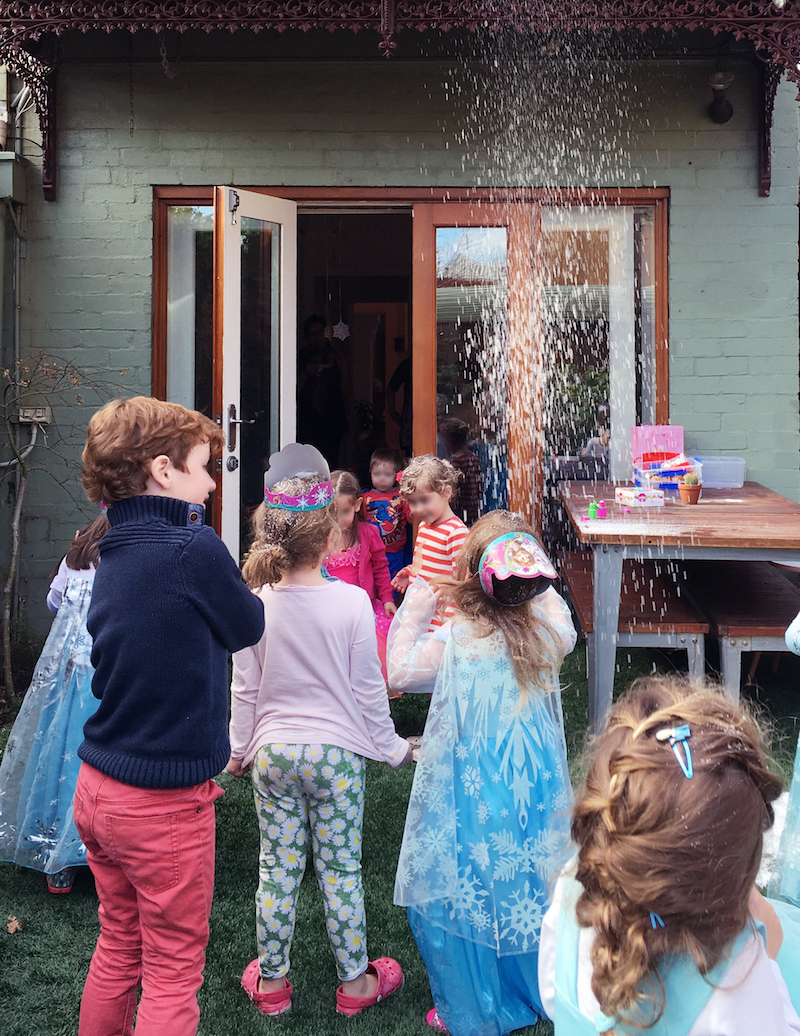
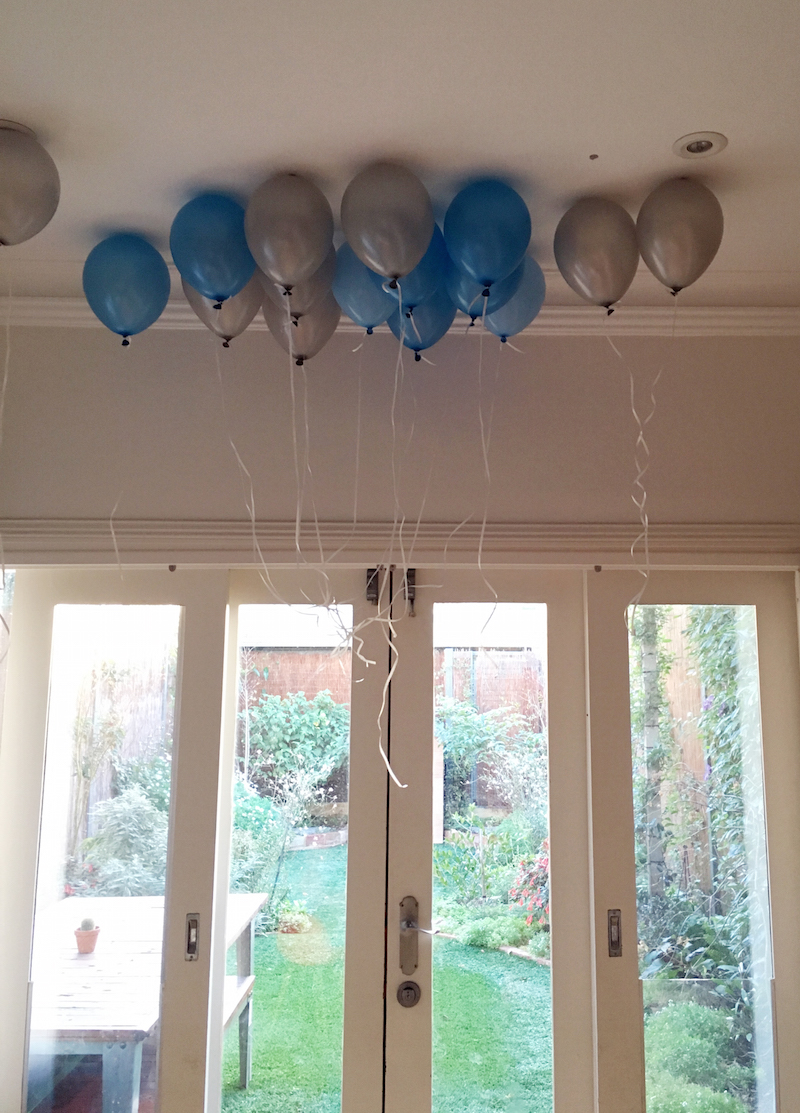
When you are nearly four, anticipation is palpable. Tangible.
It dominates your mealtimes. What will my cake look like? Will all my friends sing Happy Birthday? Can we have hot chocolate?
And your friendships. I am nearly four. Am I older than my other friends? Will my hair be longer than all my friends' hair now? Will my feet be bigger than all my friends'?
Cleaning the house before your party, you don't even mind hiding your toys to make room for the party games. You can put them away now, Mummy, I don't mind. You help your mother decorate the house with the posters and banners and streamers and balloons you chose from Big W; mix up polymer snow-powder; smooth out tiny, handmade, paper snowflakes in your little almost-four hands.
Anticipation permeates your dreams. Quick! I have to get ready for my party! you yell, still fathoms-deep in sleep. (I will come to your party, your brother drowsily replies, before sinking back into his own dreams.)
................................
I didn't want to host yet another party in my house, but Scout begged me to do it. She didn't want to celebrate her birthday anywhere else. It was a lot of work, as parties always are. But in the weeks and days beforehand, as the day grew near and nearer still, I came to understand the joy of anticipation through her eyes. Even the most mundane of tasks: tidying, vacuuming, grocery shopping; became acts of thrilling expectation, and gave her joy before the real joy of the party.
I guess we never stop learning from our children.
Animal etiquette
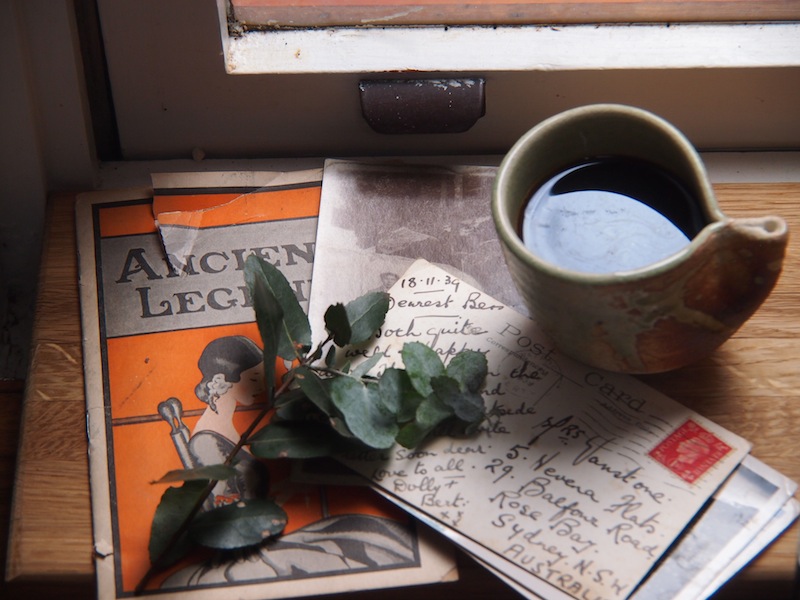
"No animal, according to the rules of animal-etiquette, is ever expected to do anything strenuous, or heroic, or even moderately active during the off-season of winter." - Kenneth Grahame, The Wind in the Willows
We are recovering from Scout's fourth birthday party yesterday. As luck would have it, today is a public holiday, so I intend to be unheroic and inactive, all day. Back soon! xo

